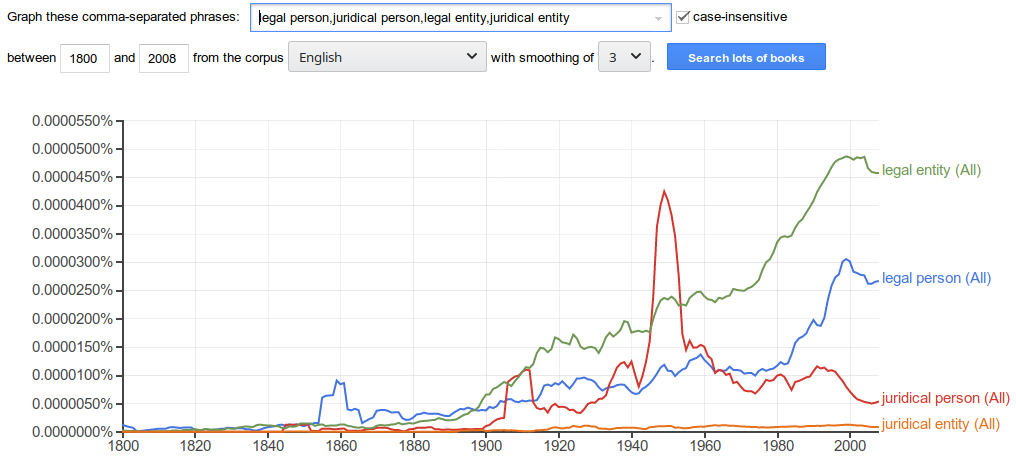Pessoa jurídica é legal person ou legal entity. Este é o termo mais usado em inglês.
Esta é a definição de legal person na Wikipédia:
A legal person in legal context typically is a person (or less ambiguously, a legal entity)1—whether human or non-human—that is recognized as having certain privileges and obligations such as the legal capacity to enter into contracts, to sue, and to be sued.[3][4][5]
However, the term "legal person" is ambiguous because it is often used as a synonym of terms that refer only to non-human legal entities, specifically in contradistinction to "natural person".[6][7]
So there are of two kinds of legal entities, human and non-human: natural persons (also called physical persons) and juridical persons—also called juridic, juristic, artificial, legal, or fictitious persons, Latin: persona ficta—which are entities such as a corporation, firm, business or non-business group, or government agency, etc., that are treated in law as if they were persons.[4][8][9]
Pessoa física é natural person or physical person:
In jurisprudence, a natural person is a person (in legal meaning, i.e., one who has its own legal personality) that is an individual human being, as opposed to a legal person, which may be a private (i.e., business entity or non-governmental organization) or public (i.e., government) organization. Historically, a human being was not necessarily a natural person in some jurisdictions where slavery existed (subject of a property right) rather than a person.
